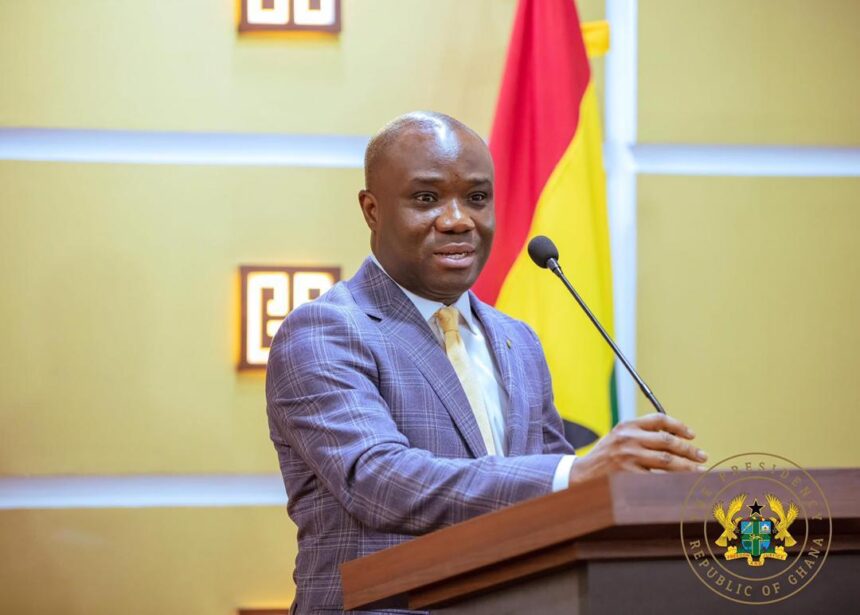The Government of Ghana is intensifying its crackdown on illegal small-scale gold mining, known locally as galamsey, with a new strategy aimed at curbing the environmental devastation and health risks caused by the practice, Minister of State for Government Communications and MP for Abura-Asebu-Kwamankese, Felix Kwakye Ofosu, announced Tuesday.
The announcement comes amid growing public outcry over the environmental toll of galamsey, which has polluted rivers, destroyed farmlands, and threatened the country’s cocoa industry, a key economic driver. The illegal mining sector, often operating without permits, has long been a challenge for Ghana, one of Africa’s leading gold producers. Mercury used in gold extraction has contaminated water sources, raising concerns about public health and ecosystems, particularly in rural communities.
Speaking at a press conference in Accra, Kwakye Ofosu outlined the government’s multi-pronged approach, which includes stricter enforcement, enhanced monitoring, and community engagement to address the root causes of illegal mining. “We are committed to restoring our environment and protecting the livelihoods of Ghanaians,” Ofosu said. “This strategy will combine robust law enforcement with sustainable alternatives for those involved in galamsey.”
The new plan involves deploying additional security forces to mining hotspots, using satellite technology to monitor illegal activities, and imposing heavier penalties for offenders. The government also plans to collaborate with local chiefs and community leaders to promote legal, regulated small-scale mining as an alternative. Ofosu emphasized that the strategy would prioritize job creation in affected areas to deter illegal mining driven by economic desperation.
Ghana’s gold industry accounts for roughly 50% of the country’s export revenue, but illegal mining has undermined efforts to regulate the sector. The practice has drawn criticism from environmentalists and civil society groups, who argue that lax oversight has allowed galamsey to flourish. In recent years, protests and media campaigns, including the #StopGalamseyNow movement, have pressured the government to act.
Analysts say the new strategy could face hurdles, including resistance from communities dependent on galamsey for income and entrenched corruption within the mining sector. “The government’s intentions are clear, but implementation will be key,” said Kwame Asiedu, an environmental policy expert at the University of Ghana. “Without addressing systemic issues like poverty and weak governance, illegal mining will persist.”
The initiative follows previous government efforts, including a 2017 ban on small-scale mining, which yielded mixed results. While the ban temporarily reduced illegal operations, it also sparked economic hardship for miners, leading to calls for more sustainable solutions. Ofosu acknowledged these challenges, noting that the new strategy aims to balance environmental protection with economic realities.
Ghana’s government has pledged to provide regular updates on the strategy’s progress, with initial reports expected by the end of the year. As the country grapples with the fallout of galamsey, the success of this latest effort could shape the future of its mining sector and environmental policies.




